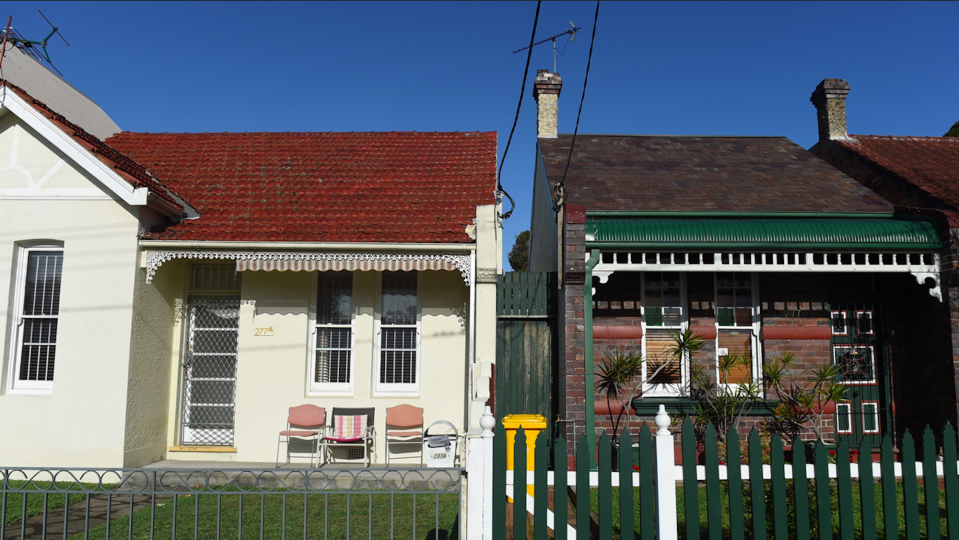7 tips to avoid losing a fortune in a property slump

What goes up must come down.
And segments of Australia’s property market are now in the slump phase of their cycle, catching out some naïve investors who hoped the value of their properties would rise forever.
This means you will probably lose money in this property downturn.
Also read: 5 reasons its a scary time to be paying off a mortgage
Now hear me out. I’m not one of those doomsayers saying our property markets will collapse.
I firmly believe the outlook for Australia’s property market remains robust and when prices rebound, the value of well located investment grade properties will reach new peaks.
Also read: How the third richest man spends his fortune
That’s because Australia’s real estate markets are supported by two solid fundamentals:
1. Our strong population growth, which ensures consistent high housing demand.
2. The wealth of our nation, which means majority of Australians can afford a property.
But between now and the next upturn there’s going to be a painful learning curve for some property investors.
Those who got carried away during the boom, often because of a fear of missing out, and took on maximum debt not understanding how the cycle works.
Of course, you could be the exception.
In every property downturn, some strategic investors do well.
Also read: Is the worst over for our Aussie dollar?
I kept investing during the property slump of the early 1980’s because I didn’t know better.
At the time there was limited information available and property statistics were only delivered annually – long after the fact.
However in the downturn of the early 90’s, during the GFC in 2008-10 and in the slump of 2011-12 my portfolio performed well because I followed a few simple rules that helped me come out on top no matter what the market is doing.
Also read: The bond market is crashing, and it’ll affect you
So here’s my advice to you:
1. Become financially fluent
Learn everything you can about how money, finance and property work and start investing early. While a trusted mentor and team will help immensely, you still need a solid understanding of how things work to make sound decisions, otherwise you’ll be easy prey for the many spruikers.
2. Adhere to a proven investment strategy
Follow a time tested proven system and don’t speculate.
The problem is many investors find my strategy is too simple and boring. They’re looking for something more complicated.
Your property investing should be boring so the rest of your life can be exciting.
3. Only buy investment grade properties
I think that less than 5% of the properties on the market at present are what I call “investment grade” and will deliver stable wealth producing rates of retuns.
Sure, there is plenty of investment stock out there, but don’t confuse the two.
These are built specifically for the investor market and sold by property marketers to naïve investors.
They lack scarcity and appeal to homeowners and are sold at a premium with no opportunity to add value.
On the other hand, investment grade properties are in the right location, appeal to a wide range of affluent owner occupiers, have street appeal and a favourable aspect.
4. Invest for the long term
Real estate is a long term investment, not a way to make “fast money.”
Growth isn’t linear so there will be years when values are flat before they rise again.
Ensure you factor in sufficient financial buffers so you won’t be forced to sell when the market turns against you.
5. Follow my 6 branded strategic approach and only buy a property:
● That would appeal to owner occupiers as they buy with their hearts (while investors buy with their calculators) and are willing to pay more for a home and consequently push surrounding property values higher.
● Below intrinsic value – so avoid new and off-the-plan properties which come at a premium price.
● With a high land to asset ratio – where the land component makes up a significant part of the asset value.
● In an area that has a long history of strong capital growth and will continue to outperform the averages because of multiple drivers of capital growth and the right local demographic who will be able to afford to pay a premium to live there because they have higher disposable incomes.
● With a twist – something unique, different or scarce about the property
● Where you can manufacture capital growth through renovations or redevelopment rather than waiting for the market to grow organically.
6. Focus on value, not bargains
Bargains rarely have potential.
If no one else wants to buy it today, no one else will probably want it in 5 years’ time.
Price is what you pay, value is what you get; so buy the best property you can afford – the type of property you’d still be happy to own in 10 to 15 years’ time.
7. Surround yourself with successful investors
It’s been said that you’re the average of the five people you hang out with the most, so surround yourself with high-performing, successful people to soak up their behaviours, habits and mindsets.
You also gain access to their experience, knowledge and resources that’ll help you make better investment decisions and financial choices.
Sure a downturn can be a scary time, but there are things you can do to ensure that no matter what happens, you’ll pull through better than most.
Michael Yardney is a director of Metropole Property Strategists, which creates wealth for its clients through independent, unbiased property advice and advocacy. He is a best-selling author, one of Australia’s leading experts in wealth creation through property and writes the Property Update blog.

 Yahoo Finance
Yahoo Finance 
